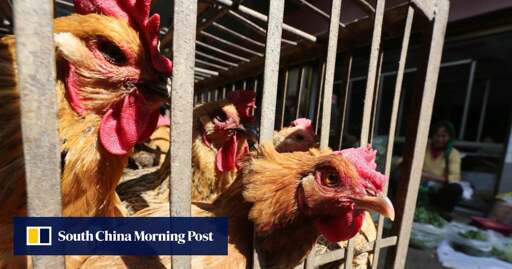ihatebirds
- 1 Post
- 43 Comments

 211·1 month ago
211·1 month agoif you can’t handle political content then just excluding worldnews from your feed should be enough

 414·2 months ago
414·2 months agothe article you’re talking about reads like a case of “our holy narrative-correcting taskforce vs their pagan misinformation agents”
[bad actors] put in the effort to build reputation…, mixing legitimate page edits with the more politically sensitive ones
through subtle changes like casting doubt on the objectivity of pro-Western accounts
they also mention adding links from Russian state-owned news, but the article doesn’t indicate that those things happen in the same incidents though mentioning it in the same sentence is certainly an attempt to conflate them. It’s one thing to remove insufficiently reliable sources, correcting misrepresented facts, and banning the wreckers that consistently produce it, but I think there is an issue if validly-sourced edits are being censored by “bias adjusters” (NPOV purposes withstanding) just because the content is deemed to have been written by a suspected bad actor.

 426·2 months ago
426·2 months agoeverybody click your wrongthink ⬇️ button, quick!

 3·1 year ago
3·1 year agothe most present politician in congress

 822·1 year ago
822·1 year agocry harder fash
The majority of that age range still considers China an enemy, but a tiny fraction of ambivalent onlookers out of an overwhelming majority of a reflexively anti-China populace is enough for the Economist to dedicate an article to a fucking YouGov poll.
It’s just another pearl-clutching “what’s wrong with today’s youths” headline to panic the elderly while flattering compliant millennials/zoomers for being one of the few (despite still being the majority!) “good ones” that march goose-step with consensus Western political thought.

 251·1 year ago
251·1 year agohttps://www youtube.com/shorts/QPnJveJLq_4
Interview snippet for the incredulous deboonkers

 121·1 year ago
121·1 year agoobjectively the moderate wing

 31·1 year ago
31·1 year agoRecycle! Write to your senator! Vote!

 57·1 year ago
57·1 year agothis article is traitorous

 33·1 year ago
33·1 year agoWest Taiwan -100000 social credit DAE Xinnie? XD

 5·1 year ago
5·1 year agoGlobal Times is published by People’s Daily though?

 101·1 year ago
101·1 year agoIt’s real. The party’s own newspaper is reporting on the objections to it during this “soliciting feedback” phase of legislating.
Edit: Actually, it’s more of an affiliate of the party’s official newspaper.

 106·2 years ago
106·2 years agoYeah that’s a silly article. Strange that a supposed “tankie” would post something that pushes the Chinese lab leak conspiracy though, especially from an outlet run by an NYT liberal like Bari Weiss.

 745·2 years ago
745·2 years agopeddling covid conspiracies
like what?

 161·2 years ago
161·2 years agoChaak-ming Lau, an assistant professor of linguistics at the Education University of Hong Kong, believes that despite increased use of Mandarin in Hong Kong society, the city is not at risk of losing Cantonese. In Hong Kong’s 2021 census, over 6.3 million people aged 5 and up still have Cantonese as their usual spoken language. The Hong Kong government’s official stance is promoting biliteracy in English and written Chinese, and trilingualism in English, Putonghua, and Cantonese. And in the Ethnologue, the world’s most comprehensive catalog of languages, Cantonese—as part of the Yue Chinese family—has “institutional vitality,” which means communities and institutions use it extensively. “Cantonese is very far from being endangered,” Lau tells TIME.
6.3 million out of 7 million people still use it as their main language. I can see how calling for the “preservation of Cantonese” could be viewed as a separatist dogwhistle. The essay that caught the attention of the government was one that described the future of Hong Kong as one where Cantonese and local culture is all but wiped out by the mainland government in 20 years. One character in the story calls the protagonist who grew up in England “more qualified to be a Hong Konger than any of us” because they were saved from the see see pee mind virus. It’s very funny.


fr these posts are just chum for wannabe curators who think they’re responsible for safeguarding the fediverse from some axis of evil